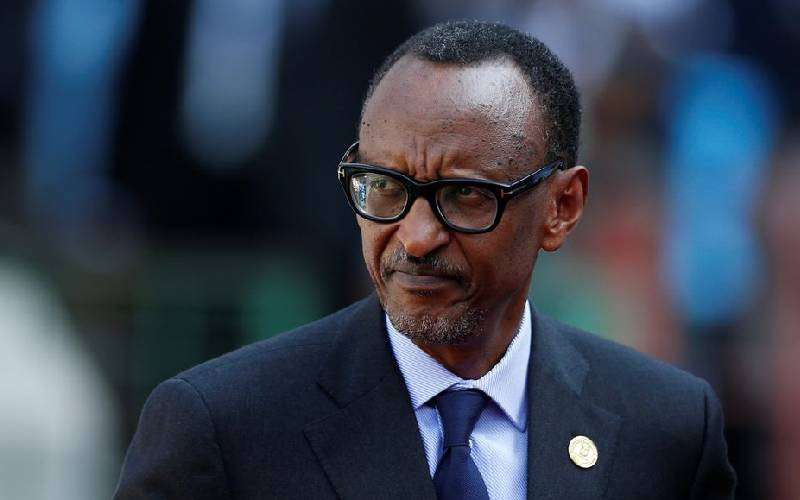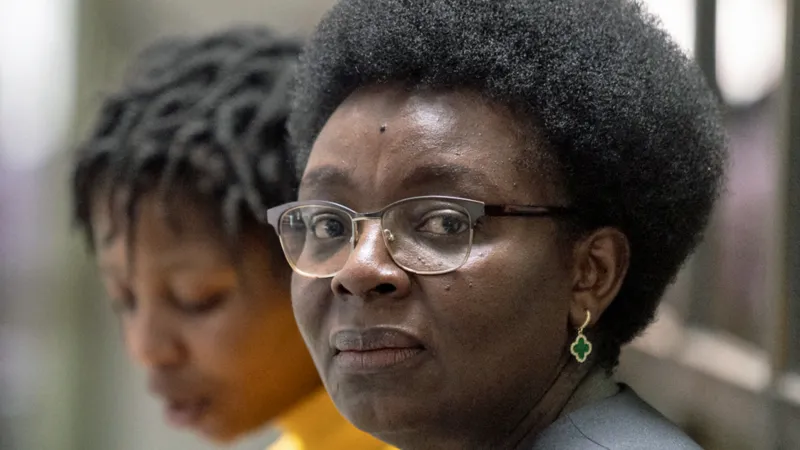A court in Rwanda has stopped Victoire Ingabire, a prominent opposition figure, from challenging a ban preventing her from running in the upcoming presidential election in July 2024.
Ingabire was released from prison in 2018 after serving eight years for charges related to threatening state security and downplaying the significance of the 1994 genocide.
Rwanda has a law that disqualifies individuals who have been imprisoned for more than six months from running in elections.
Ingabire criticized the court’s decision, claiming politics influenced it.
“The refusal of my rehabilitation is not merely a personal attack but is emblematic of the broader issues facing our nation, issues that human rights organizations and development partners of Rwanda have long criticized,” Ms Ingabire said in a statement posted on X, formerly known as Twitter.
Speaking outside the court in Kigali, the 55-year-old politician expressed her disagreement with the judge’s decision, noting the inability to appeal for two years.
She remarked, “We are still far from a law-abiding country.”
Victoire Ingabire is known for vocal opposition to President Paul Kagame, who has held a dominant position in Rwandan politics for thirty years.
Kagame consistently won presidential elections by significant margins, securing over 90% of the votes in 2003, 2010, and 2017. Recent changes to the constitution potentially allow him to extend his rule for another decade.
Despite criticism from human rights groups accusing 66-year-old President Paul Kagame of suppressing opposition, the leader has staunchly defended Rwanda’s human rights record, emphasizing the country’s commitment to political freedoms.

As the upcoming July election approaches, only one challenger has emerged, Frank Habineza of the Green Party. In the 2017 election, Habineza secured 0.45% of the vote.
In 2010, Victoire Ingabire returned from exile in the Netherlands to participate in the presidential election. However, she was arrested, barred from running, and later sentenced to 15 years in prison.
After receiving a pardon in 2018, she went on to establish the Dalfa-Umurinzi opposition party.
Ingabire, a member of the Hutu ethnic group, faced trouble for questioning why Rwanda’s official memorial for the 1994 genocide excluded any mention of Hutus.
While the majority of the 800,000 victims in the 100-day genocide were ethnic Tutsis, Hutu moderates were also targeted by extremist Hutus.
The genocide was halted by President Paul Kagame’s Tutsi-dominated Rwandan Patriotic Front (RPF) rebel group, now a political party.
Implications Of Election Outcomes In Rwanda
Rwanda’s upcoming elections in July hold implications that extend far beyond its borders, potentially impacting the United Kingdom’s stance on Rwanda as a safe destination for asylum seekers.
The outcome of these elections could shape UK policies and even influence domestic politics, including forthcoming elections within the UK itself.
External interference in Rwanda’s electoral processes could disrupt agreements between Rwanda and the UK regarding immigration, affecting legislation like the Rwanda Bill and shaping the UK’s foreign and immigration policies.
In a different sphere, Chinese investment in Rwanda has been substantial, covering a wide range of sectors including infrastructure, technology, and energy. This investment is part of China’s broader strategy in Africa, focusing on trade, resource acquisition, and geopolitical influence.
Companies like Sichuan Road and Bridge Group, StarTimes, and China Road and Bridge Corporation have made significant contributions to Rwanda’s development, benefiting both countries through improved infrastructure and expanded market access.
On the other hand, Russian investments in Rwanda, particularly in energy and mining, are less transparent but hold potential significance.
Russia’s interests in Rwanda mirror its broader agenda in Africa, aiming to bolster strategic, economic, and geopolitical ties in the region, although its presence may not match that of other global players.
READ ALSO: Abbott Reports Hester To Met Police



















